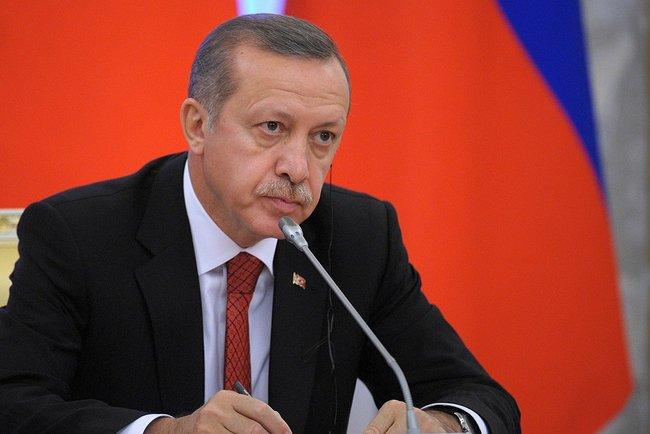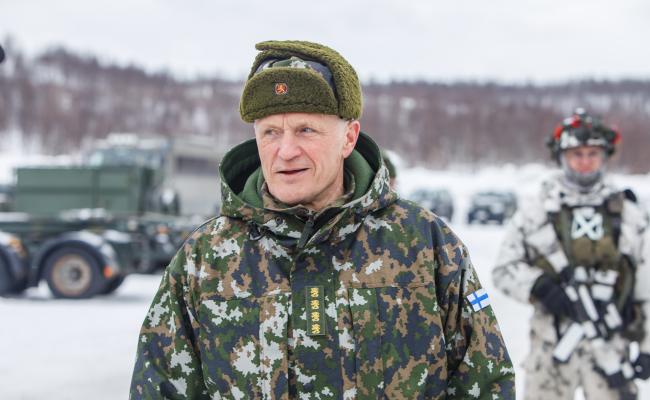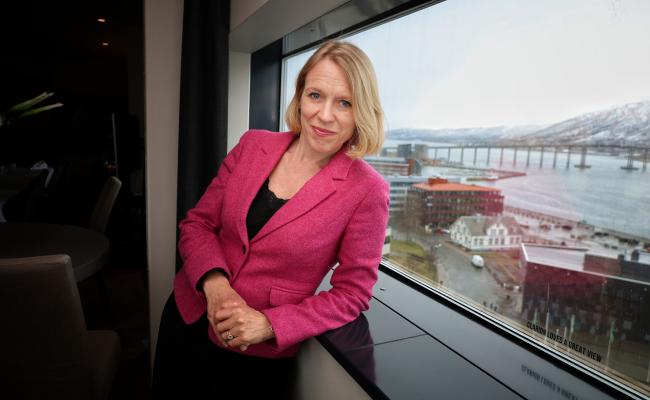Op-ed: The Arctic Fox and the Turkish Wolf Negotiating; Is the “North” Important for the Turkish Foreign Policy?

Prime Minister of Turkey Recep Tayyip Erdogan at a meeting of the Russia High-Level Russian-Turkish Cooperation Council. (Photo: Kremlin.ru, CC BY 3.0)
The opinions expressed here are belongs to the author and do not represent the views of High North News.
Turkey’s attitude towards Finland and Sweden related to their accession to NATO is not a punctual fact but a part of a broader system or, maybe better, the lack of a system.
For the last 15 years, since the moment where the AKP regime could dominate the diplomacy after a first 5-years term where the traditional diplomacy resisted to the AKP, new diplomatic approach of Ankara can be summarized as the “entryism”.
This Trotskyist method may be applied to the Turkish diplomacy because the main aim of Ankara is not to build a coherent international relations framework but, on the contrary, to be present everywhere for all costs even if this presence is contradictory to other policies.
It is the case, for example, for the Russian-Ukrainian conflict. Turkey is apparently supporting Ukraine, even by selling Unmanned Aerial Vehicles but never condemns Russian aggression and the entire propaganda apparatus of the regime uses an ambiguous pro-Russian discourse.
Other examples to these contradictory approaches since 2010s may be given in several contexts.
Ankara dared to buy Russian S-400 missile system.
Turkey refuses to give up to its candidacy to the EU but at the very same time, the internal debates focus on a possible membership to the Shanghai Cooperation Organization formerly known as Shanghai 5 i.e. to Moscow and Beijing.
In a similar manner, while being the strongest member of the NATO in Europe, Ankara dared to buy Russian S-400 missile system, obviously and provocatively incompatible with the NATO defense system in 2017.
On the other hand, while the Turkish diplomatic elites have been traditionally pro-western, the regime did not hesitate to cut -superficially - the ties with Israel first in 2009 in Davos, then after 2011, willing to win the heart of the Arab street boiling during the so called “Arab spring”.
The unrealistic dream was, at that time, to support Muslim brotherhood regimes in the Arab world and to be the link between the West and the Middle East if it’s not the leader. Of course, it was a failure.
We can multiply the examples. Thus, the Turkish attitude towards Sweden and Finland cannot be reduced only to the alleged support of Nordic countries to the PKK, Kurdish terrorist organization (at least recognized as such by the EU and the USA).
Ankara wants to be heard in all circumstances whatever it says and even if what it says changes very quickly according to time or interlocutor. It is not the question of the nature of Ankara’s claims on the table of negotiations, the question is being on the table.
Turkey’s Arctic Interest?
We may see the same approach in the Turkish candidacy to the Arctic Council in 2015. When Turkey applied for observer status at the Council, the reasons why Turkey is interested in the Arctic were not on a solid ground.
Turkey does not have any established Arctic policy to be in the region, the reason again is simply “to be there”. One day, if Turkey is introduced in the Arctic region, it would be interesting to see which path Turkey will follow in today’s bipolar conditions in the region.
If the A7 + 1 continues to operate as in the aftermath of the Russian aggression, Turkey will have to choose between 7 Western (possibly all NATO members) states or Russia with which it has historical and economic ties on the one hand and fears on the other.
There are three scenarios.
Turkish economy is not capable to be an attractive partner for Russian Arctic economic activities
If the Arctic 8 continues as previously (one day) or A7 continues with same Arctic Council regulations, Turkey will need to engage with current environmental and scientific issues in the region and probably its position will be vague as it is the case today.
If Russia continues alone or with Asian partners in the Arctic, Turkey would try that channel but the Turkish economy is not capable to be an attractive partner for Russian Arctic economic activities.
In addition, Turkey is dependent on Russian energy and trade and Russian tourists play vital role for Turkey’s economy.
Turkey shares a maritime boundary with Russia in Black Sea and has aspirations in Russian Hinterlands such as the Central Asia, the Caucasus, the Balkans or the Middle East.
Historically, Russia has been the most important parameter that determined Turkish foreign policy since the Ottoman Empire.
There are many wars with Russia in the history of the Ottoman Empire since the 16th century and at least since the 18th century all wars, were resulted by a Russian victory, including the one that ended with the Treaty of San Stefano (current Yeşilköy) in 1878 where the Russian army came until Istanbul’s doors.
No need to mention that Russia and Turkey were in two different camps during the first World War and that Kars region was occupied by Russia between 1877 and 1918.
Even if it’s true that the Bolshevik regime helped Turkish national struggle of 1920’s, Russian’s traditional policy towards Bosphorus and Dardanelle Straits provoked a structural fear in Turkish foreign policy and pushed Ankara to join the NATO in 1951 although Turkey was neutral during the Second World War.
Having weakened conjuncturally its relations with the West since the 2016 coup d'état attempts, Turkey has increased its economic and strategic relations with Russia. Since 2000’s , Erdogan’s regime uses foreign relations only for domestic power.
The fact is that the EU paid Turkey to keep refugees in Turkey in March 2016 deal and also led Erdogan to tighten the authoritarian regime inside.
One of the guaranteed cards he would play
Although this caused great polemics among the public opinion in Turkey, the EU has given a valuable card to Tayyip Erdogan, where Erdogan can play the threat of "I will open the doors" at every opportunity and has put the EU in an anti-immigrant situation.
Dual Approach or No Approach?
By the beginning of the Russian invasion of Ukraine in March 2022, Turkey both sold cheap drones to Ukraine and sided with NATO, while winking at Russia by vetoing the NATO memberships of Finland and Sweden.
In fact, the Turkish administration is trying to consolidate its own power inside where an unprecedent economic crisis shakes Erdogan’s legitimacy for the first time since 2010 referendum.
Erdogan's raising the PKK issue against Sweden and Finland was one of the guaranteed cards he would play.
After a long time, Erdogan's foreign policy statement did not receive a reaction from the opposition inside, because the Kurdish question (and therefore, the PKK) is on a very sensitive ground in Turkey.
Therefore, one should not think that the West was surprised and unprepared for this situation. As Uzgel points out, Erdogan tends to take the chance to bargain in every international crisis, and the west knows it.
But the real question is how these negotiations will go and what will be agreed since the elections are approaching in Turkey.
There is a very deep economic crisis in Turkey.
The inflation is rampant, prices are extremely high, violence towards women increases, femicide goes unpunished and the AKP is increasing its pressure inside in every area of life, causing a deep unhappiness.
This will be decisive for the elections to be held in June 2023. However, the question of how Erdogan and the AKP government will continue until the June 2023 elections in this economic crisis is on the agenda.
We do not yet know what will come out of this agreement
At this point, the NATO crisis gave Erdogan a good opportunity to sit at the table with the West.
We do not yet know what will come out of this agreement since there is a silence, an omerta, but it is certain that Erdogan will show this bargain over fragile PKK question as a success in domestic politics and will try to pull the wool over the eyes of the Turkish very nationalist public opinion.
Since 2010s, the Turkish government have constructed all its politics on domestic gain. All is about to reinforce its power inside. The AKP elector as well, don’t expect the AKP to follow any traditional way of diplomacy or foreign policy.
On the contrary, they want Turkey to exist in international relations, “how and where” is not a problem. And it works. For example, for the first time, Turkey has become a topic in Arctic related press thanks to its NATO reaction.
Now, what kind of concession would the West give to Turkey to be able to include Sweden and Finland in NATO, that is the question. The stronger Erdogan gets, the more repressive the regime becomes, and NATO, Stockholm and Helsinki know it.
But in international relations, security comes first before the nature of the regimes. Therefore, at some point, the fox and the wolf will negotiate, and the wolf symbolizing the Turkish nationalism will try to be the winner both inside and outside of the steppe.



